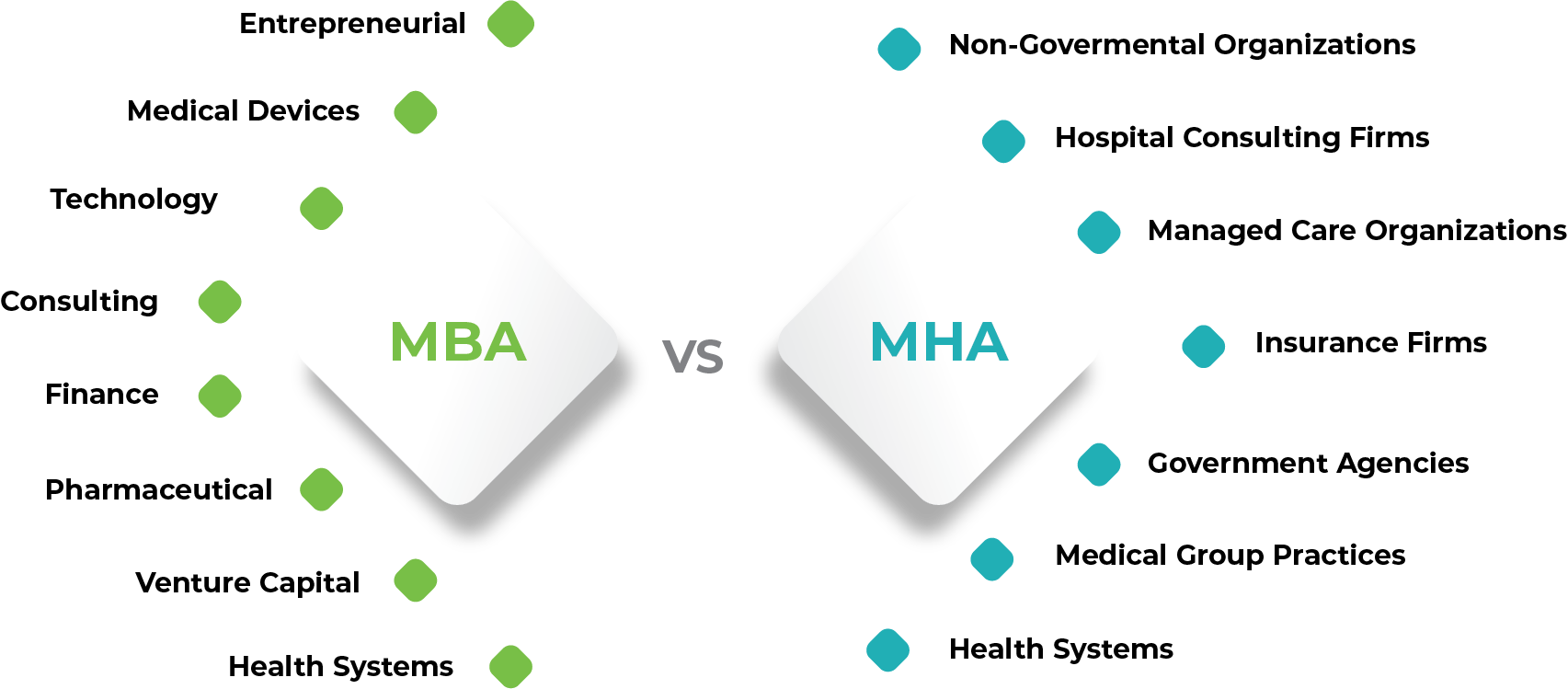
An MBA in healthcare Leadership provides business skills and a deeper understanding of healthcare organizations and policies, enabling informed decision-making for better patient outcomes. 学生s will learn to navigate complex systems, analyze policies and regulations, and develop strategic plans in the following areas:
医疗保健系统、财务和运营
Learn about the solutions that span care settings to meet the needs of organizations and health institutions.
医疗保健政策与法律
获得有关决定、目标和行动的有价值的见解,这些决定、目标和行动塑造了医疗保健 被访问和管理。
医疗保健策略
Develop management strategies and processes that improve health outcomes, care coordination, and financial models.
An MBA with a healthcare leadership concentration can offer several advantages over a Master of Healthcare Administration (MHA). For one, it provides a broad business education foundation that equips graduates with a versatile skillset applicable across a range of industries, not just healthcare. This opens up the potential for lateral career shifts and diversification. In contrast, an MHA tends to focus more narrowly on healthcare-specific knowledge and practices. Furthermore, the MBA curriculum often emphasizes strategic thinking, financial acumen, and leadership skills, tools that are critical for tackling complex business issues within the healthcare industry. This generalist approach can be particularly advantageous for those seeking executive or upper-level management roles, where a broader understanding of business concepts is often crucial. While an MHA provides depth in healthcare administration, an MBA with a healthcare concentration can provide both breadth in business principles and depth in healthcare knowledge.

